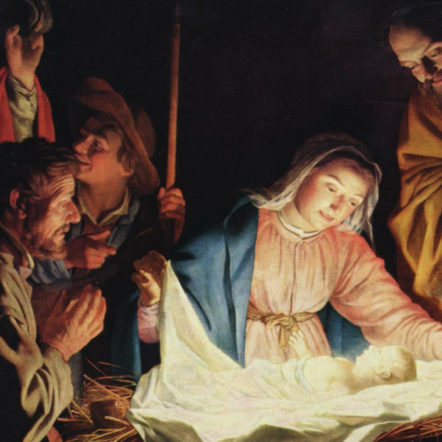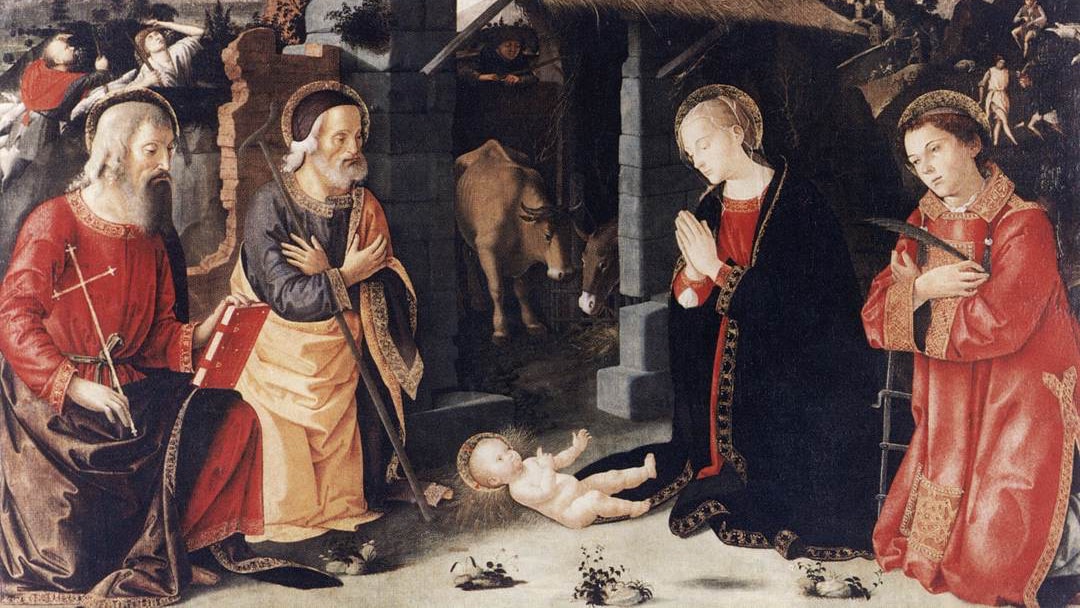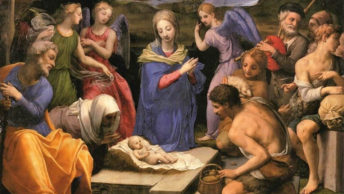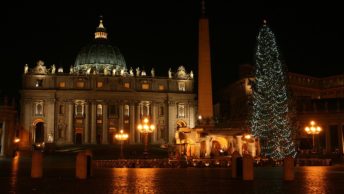We are more than familiar with the passage from the Gospel of Luke (2:1-14) proclaimed at Christmas Mass. Thus, it is so easy for us to picture this scene in our mind.
Since I am a purist and I love doing research to get to the bottom of things, allow me to help us bring into focus this setting. The inn where Joseph had hoped to find some room for his very pregnant wife Mary to deliver her divine Baby was a shed or a cave with a fenced stall annexed to it in which travelers would keep their animals. At the edge of the shed facing the fenced stall, there was a feeding trough.
Since we should know and must believe that nothing happens by chance, but everything, good and bad alike, unfolds within God’s mysterious plan of salvation, we must wonder why the heavenly Father arranged for that census to be issued by Caesar Augustus at that time and everything else that transpired in these Gospel verses.
We are told that Joseph was of King David’s royal lineage and, therefore, that he had to travel from the northern hamlet of Nazareth all the way to the southern town of Bethlehem. But we might not know that Bethlehem means House of Bread.
At this juncture, we should realize the squalor of the accommodation and the total absence of privacy compounded by the fact that Mary had to deliver the Son of God out in the open among sheep and donkeys. It should be easy for us to imagine the embarrassment of Joseph, not only for the utter shabbiness into which he had led his wife Mary, but also for reading in her eyes the anguished humiliation which that situation was imposing on her.
Perhaps with the assistance of a kind woman, the umbilical cord was cut; the divine Infant was bathed, dutifully rubbed with salt before Mother Mary wrapped him ever so gently in swaddling clothes, nursed him and … placed him in the feeding trough.
Why so much poverty, misery, squalor mitigated only by the assiduous, most tender care of Mother Mary?
Why did the Father arrange for such a miserable setting for the birth of His Son?
The quick answer would undoubtedly be that our Father is madly in love with us.
But let us proceed step by step so that our appreciation of God’s love for us may sink from our minds into our hearts and settle at gut level, to generate peace of mind, serenity and an urgent need to reciprocate His love with all the love that we can muster.
What is readily obvious must be that Jesus is God in human flesh sent from heaven to rescue us from the power of darkness and to make us full-fledged sharers in His divine nature.
By placing her most precious divine treasure in that manger, Mary anticipated what Jesus would have done in the Upper Room, during the Last Supper, when he fed his disciples his very flesh so that, they and all of us, may have a share in the very life of God.
Allow me to bring, though ever so slowly, into focus this mind-blowing aspect of the Father’s plan.
Here are the relevant bits of the Father’s plan. Listen to them as you picture Mary wrapping Jesus in swaddling clothes and placing him into the feeding trough.
My Father gives you the true Bread from heaven. (John 6:32)
I am the living bread that came down from heaven; whoever eats this bread will live forever; and the bread that I give is my flesh for the life of the world. (John 6:51)
Just as the living Father sent me, and I have life because of the Father, so also the one who feeds on me will have life because of me. (John 6:57)
This is my Body, which will be given for you; do this in memory of me. (Luke 22:19)
Then we, your people, the sheep of your pasture, will give thanks to you forever; through all ages we will declare your praise. (Psalm 79:13)
Most likely, we never read this heartwarming story of the birth of our Savior in the context of the Eucharist. But such has been the plan of our Heavenly Father for us the sheep of his pasture. This church, too, is a House of Bread.
And now we realize how true is the axiom that Christmas is all about giving?
Yes!!! St. Luke reminds us that Mary placed her firstborn in that manger because, from all eternity, God had decreed that, through him, who is the light of the world, we may walk away from the darkness of sin and evil and we are to be sharers of God’s life by feeding on the flesh of Jesus, the Father’s Son, the Father’s Gift to us.
If we are moved by this thought, we might decide to reciprocate His love by a generous and joyous self-giving of ourselves to those people the Lord has placed in our life.
On this holy night, we resolve to come back in this House of Bread, to be enlightened and renewed in strength to continue our self-giving until in the Father’s eternal home we shall never hunger again.








